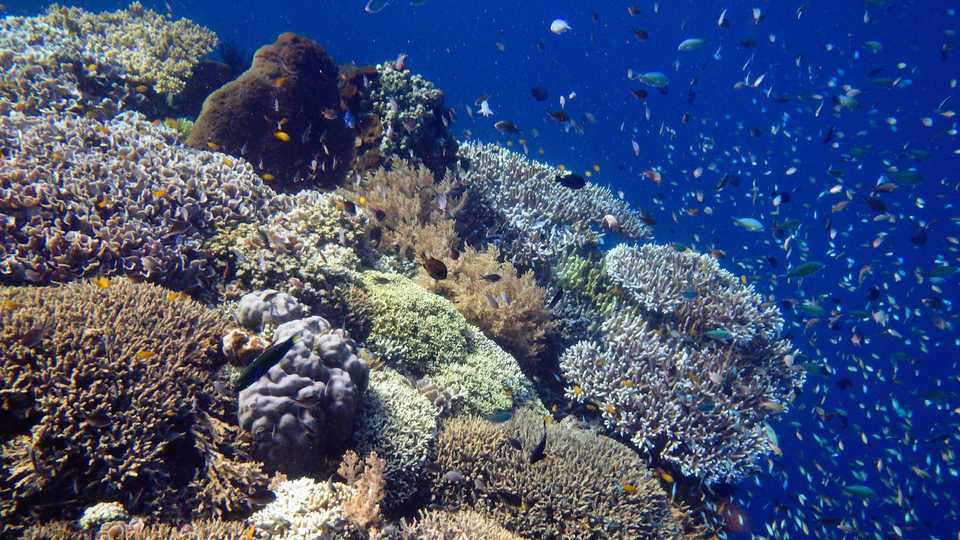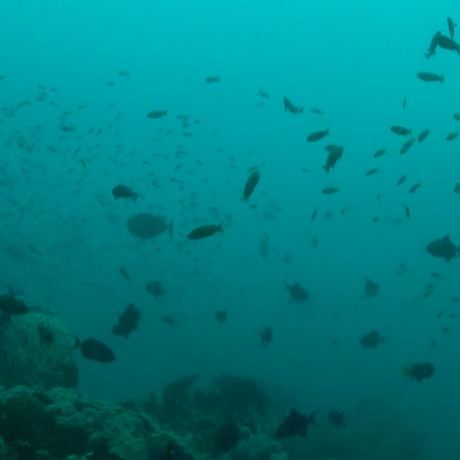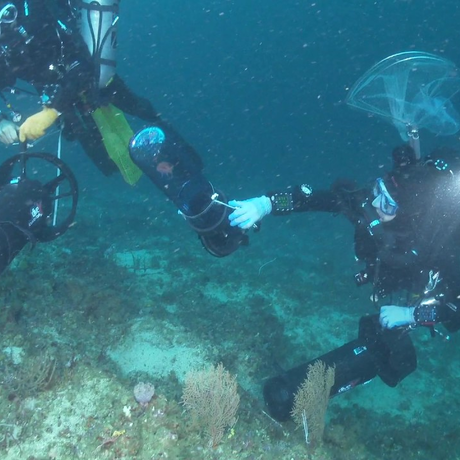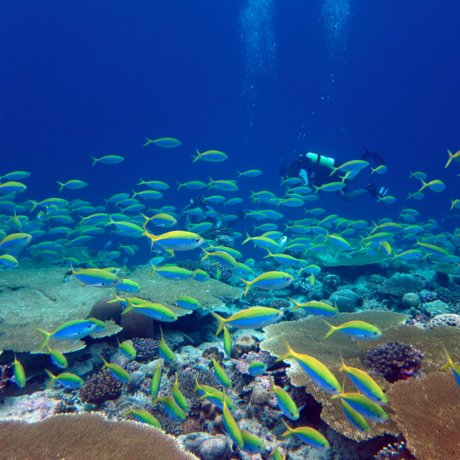Science News
Global and Local Help for Coral Reefs

It’s no secret that coral reefs are in trouble worldwide. And now a new study suggests that the effects from global climate change may outweigh local efforts to protect them.
Published in Scientific Reports, the authors find corals in pristine areas fare little better than those close to heavily populated areas.
This conclusion adds to debate over reef conservation strategy among scientists. Are local safeguards crucial levers for protection, or futile in light of global warming?
It’s complicated.
Causes of coral death are difficult to decipher due to a mix of factors and data scarcity, particularly for local stressors such as sedimentation, nutrient inputs and concentration, fishing intensity and chemical contamination. In contrast, sea surface temperature data on most reefs are readily available, leading many studies to document the role of global warming in driving coral loss.
To address this data gap, scientists often use human population density as a proxy for cumulative local stressors. John Bruno and Abel Valdivia, the authors of this study, examined data from over 1,700 reef surveys worldwide between 1996 and 2006, comparing the percent of algae and coral cover with the size of the nearby human population. Algae dominates in the absence of coral communities, and is often driven by coral diseases and bleaching, fishing that removes herbivores, and increased runoff human activities.
Bruno and Valdivia found that human population density explained less than 1 percent of reef variance in coral and algal cover. In other words, the number of people living in close proximity to a reef is a poor predictor of the health of that reef.
The authors suggest this finding indicates that local problems facing reefs are trivial compared with climate change, and solutions should reflect this reality.
“Local conservation alone will not restore reefs,” Bruno told Climate Central. “It’s essential that we reduce greenhouse gas emissions immediately and drastically…the reason a lot of scientists want to believe local impacts and conservation matter is because they desperately want to be able to offer solutions that don’t require cuts to carbon emissions.”
Other scientists are more optimistic. Mike Beck, a marine scientist with the Nature Conservancy, said the results “could equally support a hypothesis that many local management efforts are working” and that such efforts “should get more support.”
Beck noted research by himself and others has shown reefs are faring better globally than other coastal ecosystems, such as marshes, oyster reefs and mangroves, which are also being destroyed by surrounding human populations.
And some scientists are skeptical of such broad global analyses.
“By just taking one big snapshot of lots of reefs, we do not get a good picture of whether individual reefs have been losing coral over time or gaining coral over time,” said Deron Burkepile, a scientist at U.C. Santa Barbara. “These large global data analyses have a hard time capturing a lot of the local nuance that many studies show are important.”
The Academy’s own Bart Shepherd, Senior Director of Steinhart Aquarium, emphasized the nuances in documenting coral reef health and the importance of comprehensive protection measures.
“Some reefs seem to be resilient to human impacts, and we can potentially learn from them how to restore the most impacted areas, perhaps even using "domesticated" corals to restore reef structures in highly impacted areas,” he said.
Indeed, while even remote reefs are in decline, others seem to be functioning well. A recent Nature paper documented coral health “bright spots,” which included localities where human population is high, but strong sociocultural norms support conservation, and there are high levels of local engagement in management, dependence on marine resources, and beneficial environmental conditions such as deep-water refuges.
“[Local conservation] has to be combined with a holistic approach to restoration, including coastal management, fishing restrictions, Marine Protected Areas, water quality management, and other actions” said Shepherd.
By working with SECORE International, Academy scientists hope to use the natural sexual reproductive cycle of corals to “find a way to remove the constraints of time and labor to make active restoration a more effective component of a holistic approach to sustaining coral reefs.”
Corals protection may work best with multiple efforts at different scales. Combined with meaningful reductions in greenhouse gas emissions, local management efforts may further ensure these beautiful and productive ecosystems survive for future generations.
Image: rachel in wonderland/Flickr


